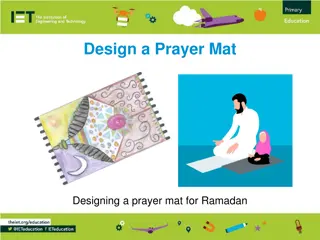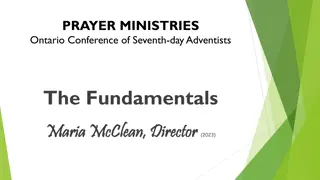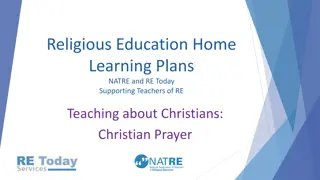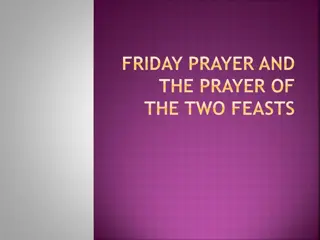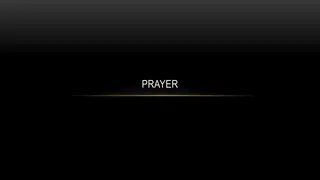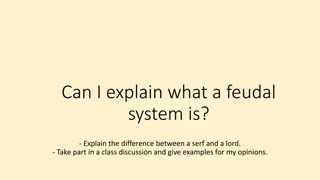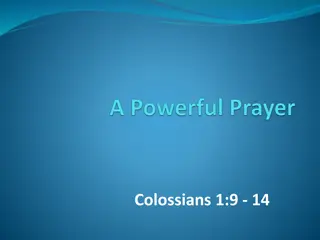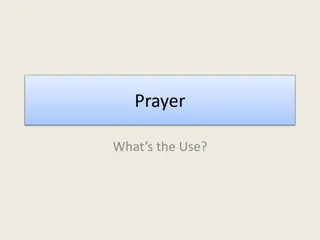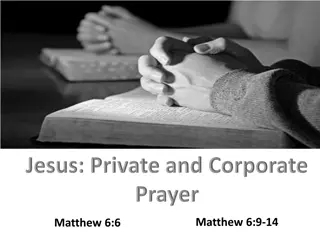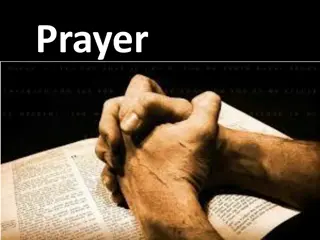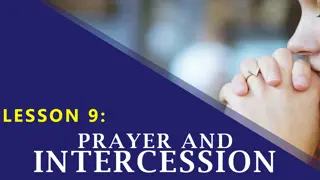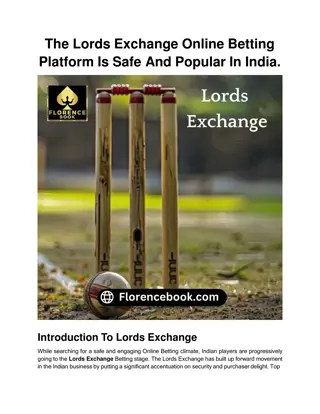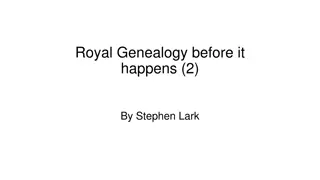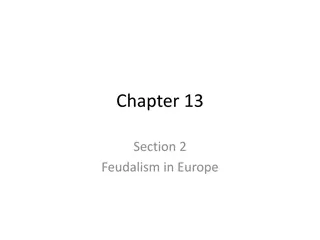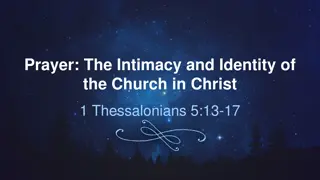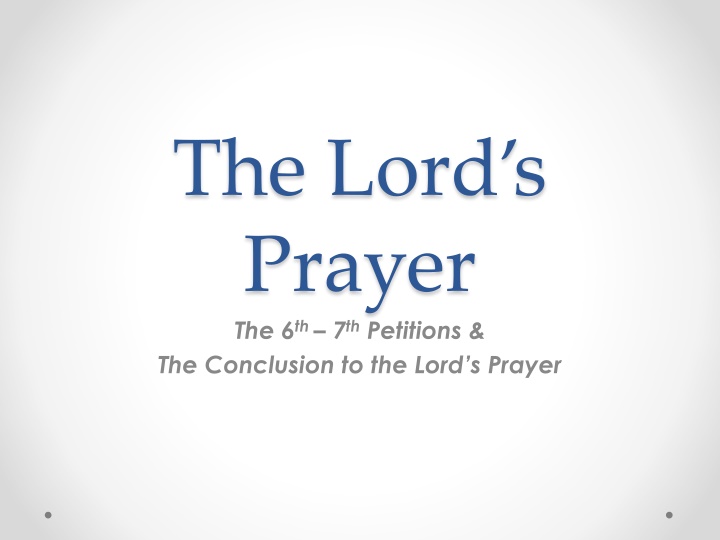
Biblical Stories: Lessons from Matthew 8:23-27
Explore the narratives of Jesus calming the storm, drawing parallels with other boat-related stories in the Bible, and reflecting on the disciples' faith amidst adversity. Discover profound lessons on trust, fear, and divine intervention.
Download Presentation

Please find below an Image/Link to download the presentation.
The content on the website is provided AS IS for your information and personal use only. It may not be sold, licensed, or shared on other websites without obtaining consent from the author. If you encounter any issues during the download, it is possible that the publisher has removed the file from their server.
You are allowed to download the files provided on this website for personal or commercial use, subject to the condition that they are used lawfully. All files are the property of their respective owners.
The content on the website is provided AS IS for your information and personal use only. It may not be sold, licensed, or shared on other websites without obtaining consent from the author.
E N D
Presentation Transcript
The Lords Prayer The 6th 7thPetitions & The Conclusion to the Lord s Prayer
Review Assignment
Matthew 8:23-27 Read Matthew 8:23-27 Q: Who was with Jesus in the boat? A: Having left the crowds, Jesus was in the boat with His disciples.
Matthew 8:23-27 Q: What other stories in the Bible include boats and/or water? A: Noah and the Flood. The Lord sent the flood of the water upon the earth in judgment against man s sin and unbelief. Through the water and the ark that God provided, Noah and his family were rescued from God s judgment. God s deliverance of Israel from Egypt at the Red Sea. God saved His people but destroyed hard-hearted Pharaoh and his army. The story of Jonah. He fled the Lord s call to preach His Word to the Nineties. He fled from the Lord s call in a ship. While in the ship, God sent a great storm arose upon the ship. Jonah sacrifices himself by throwing himself overboard to calm the raging waters of the sea, and to save the sailors and the ship.
SCRIPTURE Q: What does it mean that Jesus was asleep in the boat? A: It revealed that not only was Jesus true God but true man. As true man, He had human needs and feelings (ie - sleep, thirst, hunger, etc). Q: What is the disciples prayer when they awaken Jesus? A: Save us, Lord; we are perishing (v. 25).
SCRIPTURE Q: Do they cry out to Him from faith or from the horror of doubt? A: Both. In the face of this storm, they re afraid to lose their lives. With Jesus asleep in the boat, the disciples are tempted to believe that Jesus doesn t care and has abandoned them in their time of need. Yet, in the face of death, the disciples are stripped of all reliance upon themselves. With no one else to turn to in their time of need, they turn to Jesus.
SCRIPTURE Q: What does Jesus do? A: Then he rose and rebuked the winds and the sea, and there was a great calm (v. 26). As God in human flesh, His Word silences the wind and the waves. Q: Did their faith in Him move Him to act? A: No! He acts not on account of their faith but because of the promise of His grace for Christ s sake.
SCRIPTURE Q: What does Jesus say of their faith? What does this mean? A: Why are you afraid, O you of little faith? Jesus calls them out on their sin. In the face of death and with Jesus asleep in the boat, the disciples were tempted to believe that maybe, what Jesus has said about Himself isn t true. Maybe He isn t true God. Maybe He doesn t love us. Maybe He isn t our redeemer and Savior from sin, death, and the devil. Q: Who is Jesus that even the wind and the sea obey Him? A: In calming the sea, Jesus not only reveals himself to be true God but as the Savior from sin.
SCRIPTURE What we see in the disciples is also what we see in ourselves. We struggle between faith and unbelief. On account of the storms of this life, we re tempted by the our sinful flesh, the world and by Satan with the notion that you can t trust God. We re tempted to believe He doesn t love us and hasn t saved us from sin and death and the devil. We re tempted to believe that God doesn t provide us with all that we need in support of our body. We re tempted to believe that God is a liar by the things we experience.
SCRIPTURE Yet, Why are you afraid, O you of little faith? We at times maybe faithless, but God remains faithful for He can t deny Himself. God won t go back on His Word. Jesus, who was cast out into judgment for us on the cross, is resurrected from the sleep of death. He stands as the Church s Head and Captain who guides her through the stormy seas of sin, temptation, persecution, suffering, doubt, unbelief, and death through His life-creating and saving Word. The Lord acts for our salvation and preservation, not because of the strength of our faith, but because of Christ, and in spite of the weakness of our faith or the poverty of our fallen nature. This is good news indeed, and the source of strength for the Christ s life of prayer and for the prayer of the Church.
6thPetition And lead us not into temptation. What does this mean? God tempts no one. We pray in this petition that God would guard and keeps us so that the devil, the world, and our sinful nature may not deceive us or lead us into false belief, despair, and other great shame and vice. Although we are attacked by these things, we pray that we may finally overcome them and win the victory.
6thPetition Q: Who tempts us? A: Three things: - The Devil (1 Peter 5:8-9) - The World (John 15:18-19) - The Flesh (Mark 14:38) The purpose of these spiritual enemies is to lure us away from God and into the captivity of sin, and ultimately into belief and despair. 1 Peter 5:8-9 Your adversary the devil prowls around like a roaring lion, seeking someone to devour.
6thPetition Q: What do we ask God to do for us when we pray this petition? A: We pray that our Father would guard us against all sins that come from Satan, the world, and our sinful flesh. Rev. 3:10, Because you have kept My word about patient endurance, I will keep you from the hour of trial that is coming on the whole world . Q: How does God help us to resist those threats? A: The Word of God, Baptism, Absolution, the Lord s Supper, prayers See: Ephesians 6:13, Take up the whole armor of God Luther s Christian Questions and Answers Num. 19 & 20
6thPetition Q: Does God ever tempt us? A: No. God does not tempt us to sin. However, He does at times test our faith in order to bring us closer to Himself and strengthen our faith. James 1:13-14, Le no one say when he is tempted, I am being tempted by God, for God cannot be tempted with evil, and he himself tempts no one. But each person is tempted when he is lured and enticed by his own desires. Psalm 119 highlights this fact a number of times.
6thPetition Discuss: How does this petition tie 2ndArticle of the Creed How does this petition tie to the previous petitions of the Lord s Prayer? Final Thoughts: We are attacked daily by the devil, the world, and our sinful nature. Yet, Christ who shared in our flesh and blood, was tempted in every way we were yet without sin, has destroyed these spiritual enemies and has won the victory. Because of Him, He s able to help those who are being tempted.
7thPetition But deliver us from evil. What does this mean? We pray in this petition, in summary, that our Father in heaven would rescue us from every evil of body and soul, possessions and reputation, and finally, when our last hour comes, give us a blessed end, and graciously take us from this valley of sorrow to Himself in heaven.
7thPetition Q: How does the 7thPetition relate to the previous petitions? A: It serves as a summary of the previous petitions in which we ask our Father in heaven to rescue us from all evil of live (ie poverty, sickness, injury, etc). Q: How does it relate to the three articles of the creed? A: We see how God the creator, redeemer, and sanctifier protects and rescues us from all evil. Q: The words body, possessions, and reputation can be summed up by what commandments? Explain A: Body (5thand 6th), Possessions (7th, 9th, 10th), Reputation (8th).
7thPetition Q: What do we ask God our Father to do for us in this petition? A: That He: 1. would spare us and help us endure the troubles that befall us in this life. 1. Psalm 20:1-2, May the Lord answer you in the day of trouble! May the name of the God of Jacob protect you 2. would keep us faithful to Him, free us from this present evil age and take us to Himself when we die. 1. Gal. 1:4-5, Christ gave Himself for our sins to deliver us from the present evil age, according to the will of our God and Father, to whom be the glory forever and ever. Amen.
7thPetition Q: The last line of the explanation to the 7thPetition, Luther writes, graciously take us from this valley of sorrow to Himself in heaven. Explain the difference between valley of sorrow and heaven? How is this cause for joy and comfort? Q: Luther interpreted this petition as a final shout of victory as well as a prayer for all our needs. Do you agree? If so, how? Q: How has the victory already been won?
Conclusion For Thine is the kingdom and the power and the glory forever and ever. Amen. What does this mean? This means that I should be certain that these petitions are pleasing to our Father in heaven, and are heard by Him; for He Himself has commanded us to pray in this way and has promised to hear us. Amen, amen means yes, yes, it shall be so.
Conclusion Read Matt. 6:5-15 You ll notice we don t end the Lord s prayer as our Lord does. At some point the early church included these words, often referred to as the doxology. Over the years, the prayer and doxology were smashed together. Traditionally, the minister alone voiced the prayer and the congregation would join in singing the doxology (See TLH and Setting 3 in LSB). Luther in his German Mass provided a musical setting for the minister to chant both the Lord s Prayer and the Words of institution. This became a distinctive use of the Lutheran Church in all lands. Ultimately, chanting isn t Roman Catholic but Lutheran.
Conclusion Q: Why say the doxology? A: These words joyfully confesses that our Father is able to do all that we ask in these petitions. God our Father: Is king who bestows every good gift (James 1:17). Has the power to grant our petitions (Psalm 33:6). Q: Why say Amen ? A: Amen is derived from Scripture that means so shall it be. It emphasizes that God will hear our prayers, which He has commanded, and answer our prayers, just as He has promised.
Conclusion Large Catechism III 119-124 But all depends upon this, that we learn also to say Amen, that is, that we do not doubt that our prayer is surely heard, and [what we pray] shall be done. For this is nothing else than the word of undoubting faith, which does not pray at a venture, but knows that God does not lie to him, since He has promised to grant it. Therefore, where there is no such faith, there cannot be true prayer either. It is, therefore, a pernicious delusion of those who pray in such a manner that they dare not from the heart say yea and positively conclude that God hears them, but remain in doubt and say, How should I be so bold as to boast that God hears my prayer? For I am but a poor sinner, etc.
Conclusion Large Catechism III 119-124 The reason for this is, they regard not the promise of God, but their own work and worthiness, whereby they despise God and reproach Him with lying, and therefore they receive nothing. As St. James 1:6 says: But let him ask in faith, nothing wavering; for he that wavereth is like a wave of the sea, driven with the wind and tossed. For let not that man think that he shall receive anything of the Lord. Behold, such importance God attaches to the fact that we are sure we do not pray in vain, and that we do not in any way despise our prayer.

